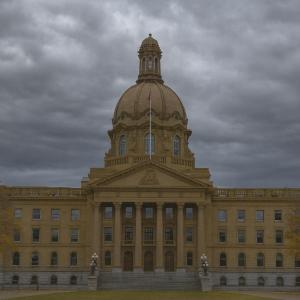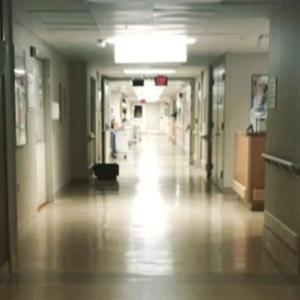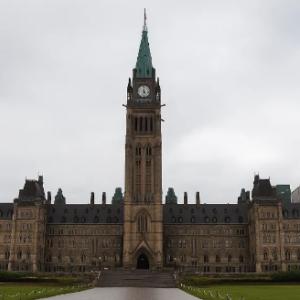Patients are being denied necessary care. It needs to change.
As a fourth-year medical student studying in Ontario, I have witnessed the transformative potential of healthcare to empower patients and improve lives. I have also seen how barriers to care perpetuate inequities and, in turn, target vulnerable groups.
I still remember my first patient in obstetrics and gynecology while on my rotation in Kingston, who arrived at the Kingston General Hospital (KGH) contraception clinic. She was told it would be a one-year wait, in either KGH and Napanee, for her bilateral salpingectomy (the modern day “tube tying” or permanent sterilization).
No word was ever spoken about the potential of having this procedure done at Hotel-Dieu Hospital (HDH). Although I was confused, I accepted this knowing we were embedded in an overworked, overburdened healthcare system.
Little did I know as a third year student at the time, that HDH is given six times more operating time for its gynecology department, yet an unwritten rule exists allowing it to deny this care to patients.
At Kingston Health Sciences Centre, gender-affirming surgeries and surgical methods of contraception are restricted from being performed at Hotel Dieu Hospital.
These restrictions to healthcare access are discriminatory, and demand urgent attention.
These issues aren’t unique to Kingston. This is happening across Canada.
To be frank, there is no formal policy prohibiting these procedures at HDH. What exists is an implicit policy that creates confusion among medical trainees and denies vulnerable patients access to necessary care.
Many faith-based institutions operate under the Catholic Health Alliance of Canada’s 2013 Health Ethics Guide, although its role in hospital policy remains unclear to us. This has led to confusion amongst medical trainees about patient access to gender-affirming procedures and surgical contraception.
The gynecologic procedures involved in gender-affirming surgeries, such as total laparoscopic hysterectomies and bilateral salpingo-oophorectomies, are OHIP-funded and deemed medically necessary for patients experiencing gender dysphoria.
These same surgeries are routinely performed at HDH for other conditions like fibroids, uterine bleeding, or cancer. But when the indication is gender-affirmation, the procedures are prohibited from booking operating room time.
Transgender people already face overwhelming barriers to care. Denying them access to surgery at HDH is not just a delay in care, it’s a violation of human rights.
As future healthcare providers, we have a responsibility to shape a more inclusive and equitable healthcare system.
In addition, procedures like bilateral salpingectomies and intrauterine device (IUD) insertions are performed routinely at HDH for reasons such as cancer prevention. However, when the indication for these procedures is contraception, they are prohibited.
This selective offering of care, based on the indication of the procedure, undermines patient autonomy and rights, compromising patients’ ability to make their own care decisions.
The 2013 Catholic Health Ethics Guide not only prohibits the procedures listed above but also restricts services such as medical assistance in dying (MAiD), abortion, and fertility treatments like IVF.
This policy has recently come under scrutiny in an ongoing lawsuit in B.C., where a young woman was denied MAiD at a publicly funded, faith-based hospital, as well as in Alberta, where Premier Smith has vowed to shift control of public hospitals to a faith-based operator.
The general gynecology department at HDH receives six times more operating room time compared to Kingston General Hospital (KGH). As a result, KGH operating rooms are reserved for more complex cases and patients with higher comorbidities. By forcing straightforward procedures like gender-affirming surgeries and surgical contraception to be done at KGH, we are exacerbating wait times for patients requiring more complex surgeries, contributing to delays that could compromise patient outcomes.
This situation contradicts the very values that KHSC claims to uphold. Its website emphasizes the commitment to caring for the most vulnerable members of our community and treating each person with respect and dignity. But selectively denying access to certain surgeries contradicts these principles. In addition, this practice is in direct violation of the Canadian Human Rights Act — which ensures individuals are free from discrimination based on factors such as sex, gender identity, and sexual orientation.
As medical trainees, we are taught to uphold the highest standards of equity, inclusion, and patient-centered care. Queen’s MD Program explicitly states its mission is to train physicians who champion health equity and address the needs of marginalized communities. Queen’s Postgraduate Medical Education also affirms its commitment to creating a supportive, inclusive learning environment.
How can we achieve these goals when the institutions responsible for training us engage in discriminatory practices?
We must push our institutions to confront the systemic discrimination embedded within healthcare policies and practices. This is especially critical in the field of gynecology, which has a troubled history of mistreating marginalized groups which has clearly not been entirely resolved. It is our duty to change this trajectory.
My colleagues and I are calling on the leadership of Queen’s School of Medicine and Kingston Health Sciences Centre to investigate and rectify the discriminatory practices that restrict gender-affirming surgeries and surgical contraception from being performed at HDH.
We are also calling on the Ontario and federal governments to address these policies in their direct violation of both the Canadian Human Rights Act and Canada Health Act.
We have hundreds of signatures from across the country, but more support is urgently needed.
The time to act is now.
---
Emma Dennison is a fourth-year medical student at Queen’s University.









